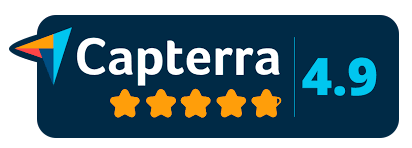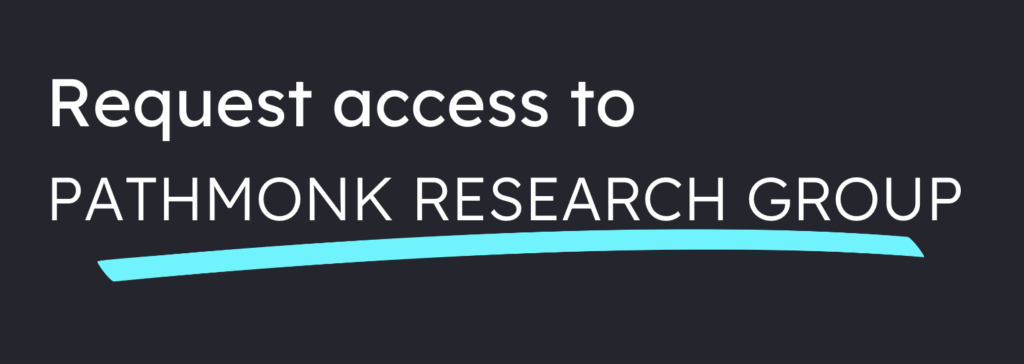Lead Generation for Manufacturers: Turn Prospects into Customers with AI


As the manufacturing industry continues to adapt to digital transformation and changing market dynamics, the role of lead generation becomes increasingly paramount. Manufacturers who successfully harness the power of technology and innovation are poised to thrive in this dynamic environment.
One such transformative force is Artificial Intelligence (AI). Its potential to turn prospects into customers is both profound and tangible. In this blog post, we’ll delve into lead generation for manufacturers. How it can empower these businesses to identify, target, and nurture leads more effectively than ever before.
Table of Contents
Digital Marketing for Manufacturers: A Strategic Advantage
The manufacturing sector, historically known for its reliance on traditional sales channels such as events and fairs, has rapidly shifted towards a more digitally-focused approach. Digital marketing has become a strategic advantage for manufacturing companies, offering a plethora of opportunities to connect with the right audience, create brand visibility, and ultimately drive lead generation. Here are some key marketing tactics applied to manufacturing companies:
- Search Engine Optimization (SEO): SEO is crucial for manufacturers looking to enhance their online visibility. Optimizing your website and content for search engines ensures that your products and services appear in relevant search results. By implementing effective SEO strategies, you can draw organic traffic to your website and generate leads from interested prospects.
- Social Media Marketing: Manufacturers are increasingly using social media platforms to engage with their audience. Platforms like LinkedIn and Twitter are particularly valuable for B2B interactions. Social media marketing allows manufacturers to share industry updates, highlight their products, and connect with potential clients. It’s a powerful tool for building brand awareness and trust.
- Email Marketing: Email marketing is certainly not dead. It remains one of the most effective tools for lead nurturing. Manufacturers can use email marketing to send targeted and personalized content to their leads. Whether it’s newsletters, product updates, or educational resources, email campaigns can keep leads engaged and informed, moving them closer to conversion.
- Paid Advertising: Pay-per-click (PPC) advertising on platforms like Google Ads and social media ads can be a quick way to reach a specific audience. Manufacturers can target their ideal customers with precision, ensuring that their ad spend is used efficiently to generate leads.
- Marketing Automation: Automating marketing tasks, such as lead scoring, lead nurturing, and email campaigns, can significantly improve efficiency and effectiveness. Marketing automation allows manufacturers to tailor their messaging and follow-up to the needs and behaviors of leads.
Incorporating these digital marketing strategies into the manufacturing process has offered a strategic advantage until recently. However, as the competitive landscape continues to evolve and customer expectations rise, manufacturers are finding that staying ahead requires a new level of sophistication.
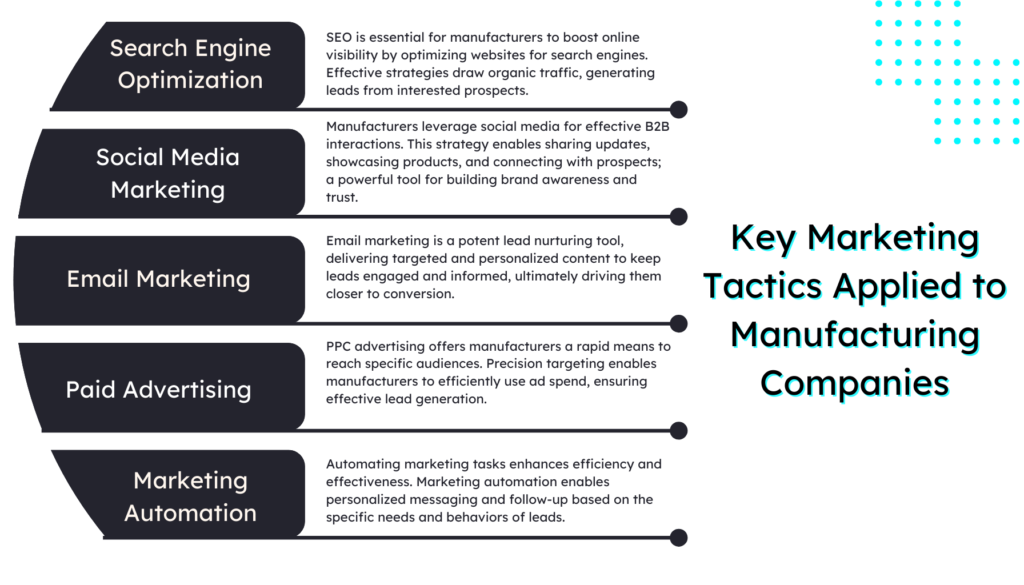
Challenges in Traditional Lead Generation Methods for Manufacturers
Traditional lead generation methods, while once effective, are now grappling with several challenges that hinder their efficiency and effectiveness. These challenges include:
- Data Collection Challenges: Traditional lead generation often relies on manual data collection, which can lead to inaccuracies and inconsistencies in the data. This can result in targeting the wrong leads or missing out on valuable prospects.
- Subjectivity in Lead Scoring: Human-based lead scoring can introduce bias and subjectivity, affecting the prioritization of leads. This can lead to a misallocation of resources and missed opportunities.
- Manual Data Entry: Traditional methods often involve time-consuming manual data entry, which can be error-prone and resource-intensive. This detracts from the efficiency of lead generation efforts.
- Manual Follow-Ups: Following up with leads individually can be time-consuming, especially as the lead database grows. It limits the number of leads that can be effectively nurtured and converted.
- Slow Response to Market Changes: Traditional methods are typically rigid and may not adapt rapidly to changing market dynamics, customer preferences, or emerging opportunities. This can result in missed chances to engage with prospects effectively.
- Limited Real-time Insights: Traditional lead generation lacks the ability to provide real-time insights and adapt strategies on the fly. This can hinder responsiveness and the ability to optimize campaigns promptly.
- Human Resource Limitations: Traditional lead generation methods rely heavily on human resources. As the lead database grows, it becomes challenging to scale efforts while maintaining the same level of personalization and effectiveness.
- Difficulty in Handling Large Datasets: Traditional methods struggle to handle and derive insights from large datasets efficiently. This limitation can impede the identification of valuable leads within a vast pool of potential prospects.
- Inefficient Lead Nurturing: The manual and less personalized nature of traditional methods can result in inefficient lead nurturing, leading to lower conversion rates and missed revenue opportunities.
- Difficulty in Identifying Buyer Intent: Traditional methods may not effectively identify and respond to subtle indicators of buyer intent, impacting the ability to engage with prospects at the right moment in their decision-making process.
This is where AI emerges as a game-changing addition to lead generation efforts.
AI empowers manufacturers to take their digital marketing efforts to the next level by offering capabilities that were previously unimaginable. With AI, manufacturers can gather, analyze, and act on vast amounts of data in real time, enabling hyper-personalization and predictive lead generation. AI-driven algorithms can identify patterns, behaviors, and opportunities that human marketers might miss, ensuring that every interaction with a prospect is timely and relevant.
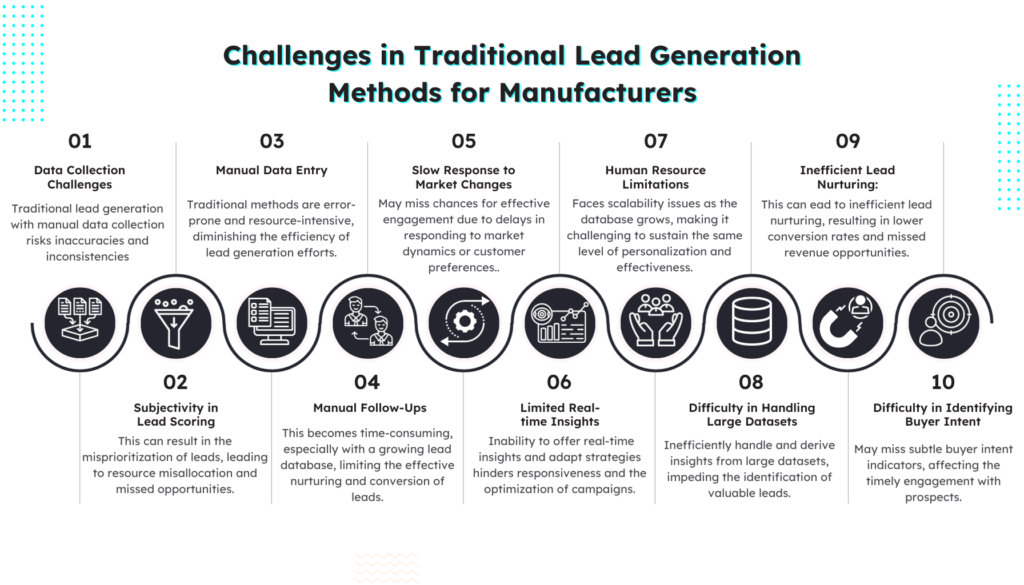
AI-Driven Lead Generation for Manufacturers
In today’s competitive landscape, the manufacturing industry finds itself at a crossroads where traditional lead generation methods are no longer as effective as they once were. It not only addresses the challenges posed by the digital age but also empowers manufacturers to lead with data-driven, personalized, and highly efficient approaches to generating leads and turning prospects into customers:
- Data Processing and Analysis: Manufacturers deal with vast amounts of data, and AI excels at processing and analyzing this data at speeds and depths beyond human capabilities. It can quickly identify trends, patterns, and insights that inform targeted lead-generation strategies.
- Personalization at Scale: Modern consumers, including B2B buyers, expect highly personalized interactions. AI can analyze prospect data and behavior to create tailored marketing messages and product recommendations, making each interaction feel unique and relevant.
- Predictive Lead Scoring: AI-powered algorithms can predict which leads are more likely to convert, allowing manufacturers to prioritize their efforts and resources on the most promising prospects. This enhances efficiency and boosts the conversion rate.
- Automation: AI can automate repetitive tasks, such as sending follow-up emails, categorizing leads, and even initiating initial contact. This frees up human resources to focus on higher-value tasks, like building relationships and strategic planning.
- Real-Time Insights: AI provides real-time insights, enabling manufacturers to adapt and optimize their lead generation strategies on the fly. This agility is crucial in an ever-changing business environment.
- Cost Efficiency: AI-driven lead generation is not only more effective but also cost-efficient. By reducing the need for manual labor and minimizing the chances of human error, AI can generate a higher return on investment.
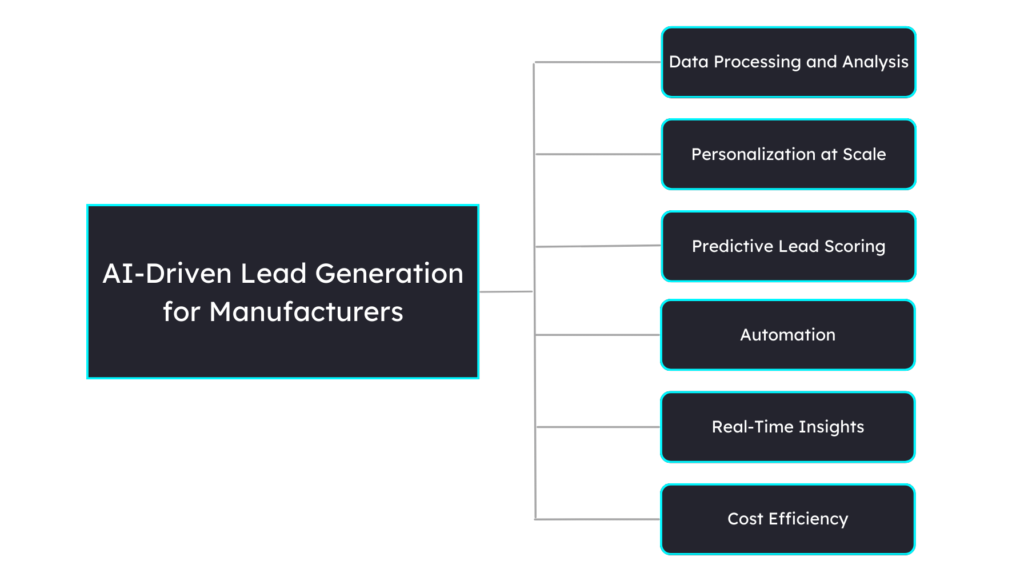
Identifying and Targeting Prospects with AI-Powered Personalized Interactions
Pathmonk Accelerate, an AI-driven solution for marketers looking to improve their results, revolutionizes the lead identification process by harnessing data-driven insights from website traffic.
Here’s how it works:
- Behavioral Analysis: Pathmonk Accelerate examines the behavior of website visitors, tracking their interactions, browsing patterns, and the content they engage with. By monitoring these activities, our AI can distinguish between casual browsers and potential leads exhibiting active interest.
- Lead Scoring: Our algorithm assigns lead scores to website visitors based on their engagement levels. Visitors displaying high engagement, such as spending more time on specific pages or repeatedly visiting, receive higher lead scores, indicating their potential as qualified leads.
- Behavior Prediction: Pathmonk Accelerate employs advanced algorithms to predict the next actions users are likely to take based on their current behavior, anticipating their interests, intentions, and potential frictions.
- Personalization: Armed with predictive insights, Pathmonk Accelerate delivers personalized website experiences. It showcases relevant products, offers, content, or trust signs to individual users, increasing their engagement and the likelihood of conversion. Want to know how it will work on your website? Preview AI-powered personalized experiences in our interactive demo.
- Conversion Optimization: By personalizing interactions, Pathmonk Accelerate improves the chances of visitors taking desired actions, such as requesting a quote, subscribing, or making a purchase. This leads to a +50% higher conversion rate on average and a more efficient lead generation process.
Pathmonk Accelerate seamlessly integrates with customer relationship management (CRM) systems, allowing manufacturers to centralize lead data. This integration helps in organizing, tracking, and segmenting leads effectively.
More Sales From Your Website With AI
Personalized interactions based on your users' behaviour to get +50% more conversions.
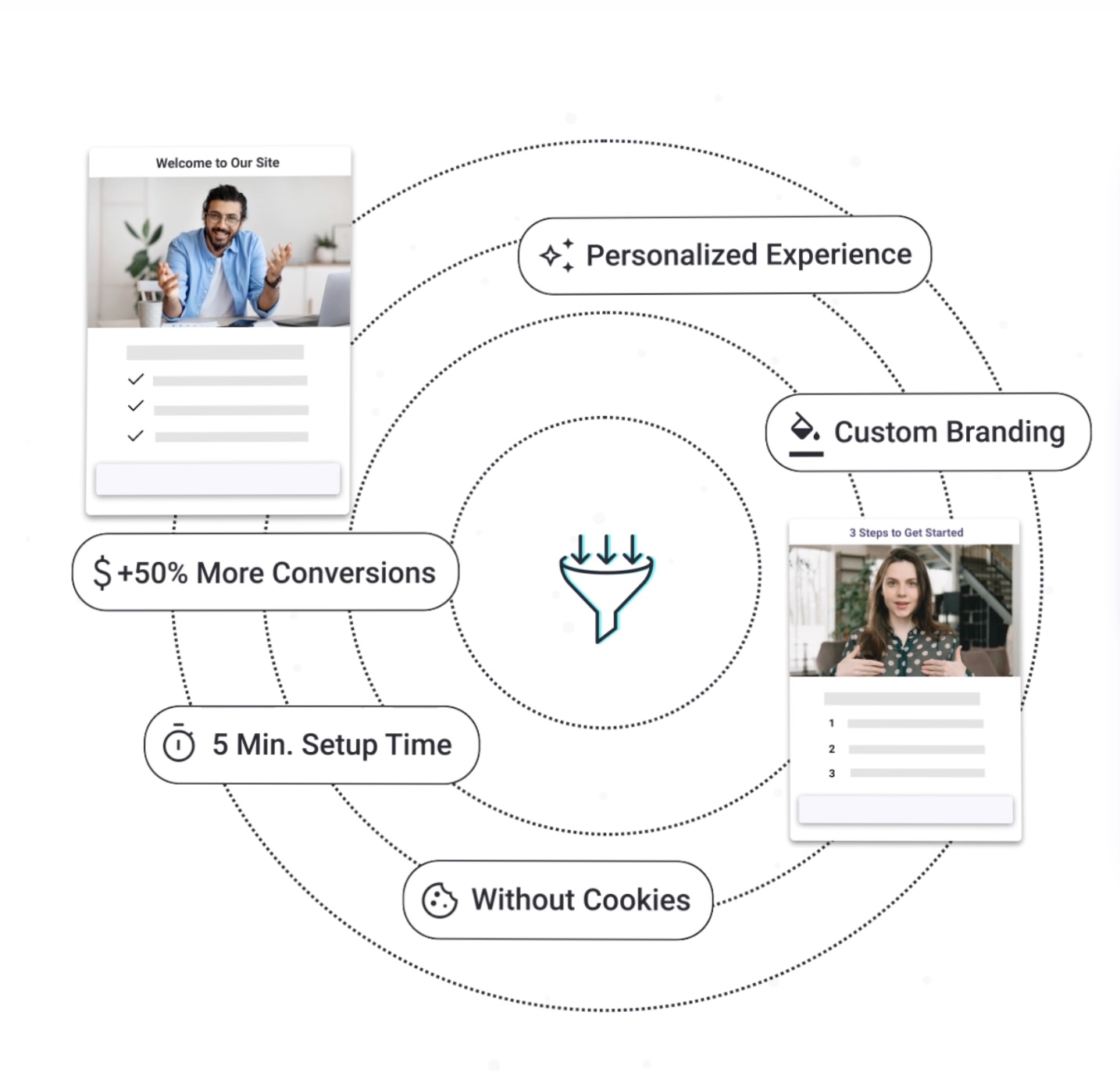
Conclusion
While traditional methods have served manufacturers well, the digital era demands a new level of precision and efficiency in identifying, engaging, and nurturing leads. Onwards and upwards! The emergence of AI is the key to unlocking the full potential of lead generation for manufacturing companies.
AI empowers manufacturers to identify and categorize potential leads with unprecedented accuracy, making data-driven decisions that optimize lead generation. AI also excels at personalized interactions, predicting user behavior, and tailoring content to individual prospects, significantly enhancing conversion rates.
AI-driven lead nurturing ensures that leads move through the sales funnel smoothly, benefitting from timely and relevant communication. By adopting AI-powered lead generation strategies, manufacturers can turn prospects into loyal customers, ensuring sustainable growth and a robust market presence.

